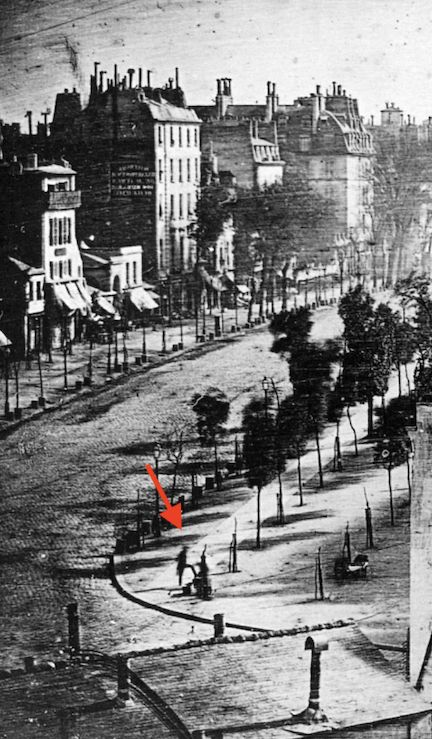Of Desolate Places and Dinner by Candlelight
The Epoch Times reports:
After a trip to Norway, a missionary family of six took on a new tradition of eating dinner by candlelight and noticed some amazing changes. ...
The family has lived “all over the place” owing to mission work including Norway, in 2017, where they came face to face with a different take on family dinnertime.
“That is actually the first place we saw that people use candles a lot for dinner,” Mrs. Coats told The Epoch Times. “I don’t think it’s the tradition ... from what we’ve gathered, I think it’s their lifestyle.”
Since they began, Mrs. Coats has noticed some interesting changes in her kids and their family dining dynamic.
“[W]e turn lights off, and it’s calm, and they‘ll sit and talk. They will sit longer because I feel all the distractions go away,” she said.

Mrs. Coats believes there is “an attack on the family unit” and a distraction epidemic in the United States.
“We’re distracted with our phones, we’re distracted with our TVs ... and it’s eating up time that we could be face-to-face with people,” she said. “I would say, even if you’re not with your family, or maybe you don’t have an immediate family, just get out of your comfort zone and find people.”
What a great idea! One worthy of every family to give it a try. Pulling aside to rest, refresh, and connect on a deeper level is a very biblical concept. Consider these words from Scripture:
"And he said to them, 'Come away by yourselves to a desolate place and rest a while.' For many were coming and going, and they had no leisure even to eat" (Mark 6:31, ESV).
While this verse is in no way "directly" addressing family meal time, it is nonetheless addressing priciples that might prove helpful as we consider our own families' busy, "distracted" lifestyles.
Context:
The disciples had just returned from a mission where they preached, healed, and cast out demons. They were tired and had been so busy that they hadn't had time to even eat.
Rest is Necessary:
Jesus acknowledges their need for rest (and eat!), recognizing it as essential for both their physical and spiritual well-being.
Rest and Ministry:
While rest is important, it's not meant to be a permanent end to ministry. Jesus is not telling them to abandon their ministry work, but rather to take a break to refresh themselves before continuing.
Desolate Place:
The "desolate place" suggests a quiet and secluded location where they can be free from distractions and find peace.
Purpose of Rest:
The purpose of rest is to restore their physical strength, allow for spiritual reflection, and prepare them for the continued ministry that awaits.
As we examine and recognize the craziness of our own lives, we would do well to look to Jesus' and the disciples' examples of pulling away to an undistracted place to quiet ourselves and feed both our bodies and spirits. In this way, we can join the Coats family in fighting “[the] attack on the family unit” and "distraction epidemic in the United States."
So go ahead ... Turn out the lights, and turn on family rest and rejuvination!
"And these words that I command you today shall be on your heart. You shall teach them diligently to your children, and shall talk of them when you sit in your house, and when you walk by the way, and when you lie down, and when you rise" (Deuteronomy 6:6-7, ESV).
It's The Stillness That Lasts
The "daguerreotype" was one of the earliest types of “still” photography.
A daguerreotype is created using a copper plate with a highly polished silver surface, which has been sensitised to light (by treating it with iodine fumes). The plate is exposed in a camera and the image developed using mercury vapour. The process produced sharp results that were a mirror image of the subject. It became the first commercial photographic process and was used in countries around the world for the next 20 years.
The image below, taken in 1838, is believed to be the first photograph of a person.
This daguerreotype, made by Daguerre himself, is of a busy road in Paris. Due to the long exposure time needed, anything moving in that time, such as people or vehicles were not in one place long enough to make an impression. The man in the lower left-hand corner was captured because he was standing still while he had his shoes shined.
There is no doubt the streets of Paris would have been bustling with all manner of activities that lovely, clear day. People running errands in and out of shops, horses and carriages carrying businessmen and tourists all about, children, and perhaps even stray dogs, frolicking in the parks and on the sidewalks. Yet the streets look all but deserted, save for the lone gentleman who stopped, standing quite still, to have his shoes shined.

Now consider Jesus’ lesson about the stewardship and ministries of his two, beloved female disciples, Mary and Martha.
But what do the ministries of Mary and Martha have to do with still photography, you might ask?
As Jesus and his disciples were on their way, he came to a village where a woman named Martha opened her home to him. She had a sister called Mary, who sat at the Lord’s feet listening to what he said. But Martha was distracted by all the preparations that had to be made. She came to him and asked, 'Lord, don’t you care that my sister has left me to do the work by myself? Tell her to help me!'
'Martha, Martha,' the Lord answered, 'you are worried and upset about many things, but few things are needed—or indeed only one. Mary has chosen what is better, and it will not be taken away from her.' -- Luke 10:38-42
While Martha busied herself with “many things,” Mary simply sat at Jesus' feet.
Martha was quite confident that her frantic energy and labor for the Lord’s sake was all that mattered. So she must have been taken aback to hear the Lord’s loving rebuke: “Martha, Martha, you are worried and upset about many things, but few things are needed — or indeed only one. Mary has chosen what is better, and it will not be taken away from her.”
Wait, what?! Isn’t “serving” the Lord (and others) what it’s all about?
Not according to the Lord Himself.
Absent the rest and devotion of just sitting at His feet, all our efforts and labors for Him and His kingdom are just fleeting activities.
Busy-ness of life is just that … busy-ness ... which is quickly forgotten, lost in the long exposure.
Like the images on a daguerrotype, it’s those moments when we just stop and be still before God that will last, making an eternal impression.
"Be still and know that I Am God" (Psalms 46:10).
Jesus' Burden Is Light
Every human relationship carries with it a certain set of expectations. That responsibility differs depending on the nature of the relationship. I have one set of responsibilities to those who hold authority over me, like my boss or my pastor. I have another set of responsibilities to my friends, to my neighbors, to those I mentor, to my spouse, and yet another to my children.
Needless to say, some of these relationships carry a weightier burden of responsibility than do others.

But who places the heaviest burden of expectation on you? For the Christian, the answer is easy, that would be God. Right? After all, He is our Creator and all that we have we owe to HIm.
Nevertheless, Jesus said that the burden of expectation He places on us is, comparatively speaking, light. This is really an astounding statement. How can our burden of responsibility to God be lighter than it is to others? Aren't we more accountable to Him than to anyone else? Absolutely! In a sense, every moral obligation we have to others goes back to God, Himself.
But the message of grace is that Jesus has taken all of the burdens of God's expectation from us and has placed them on Christ. So, according to Jesus, the lightest burden we will ever bear in any relationship will be with our Savior, who fulfilled all of our obligations. Who else in our life has ever released us like this?
Jesus has fulfilled all that God expected of us and has replaced those expectations with an unconditional love that has freed us to just love Him back. Truly, what was a burden has, in Christ, become a joy.
"Take my yoke upon you and learn from me, for I am gentle and humble in heart, and you will find rest for your souls. For my yoke is easy and my burden is light" (Matthew 11:29-30).